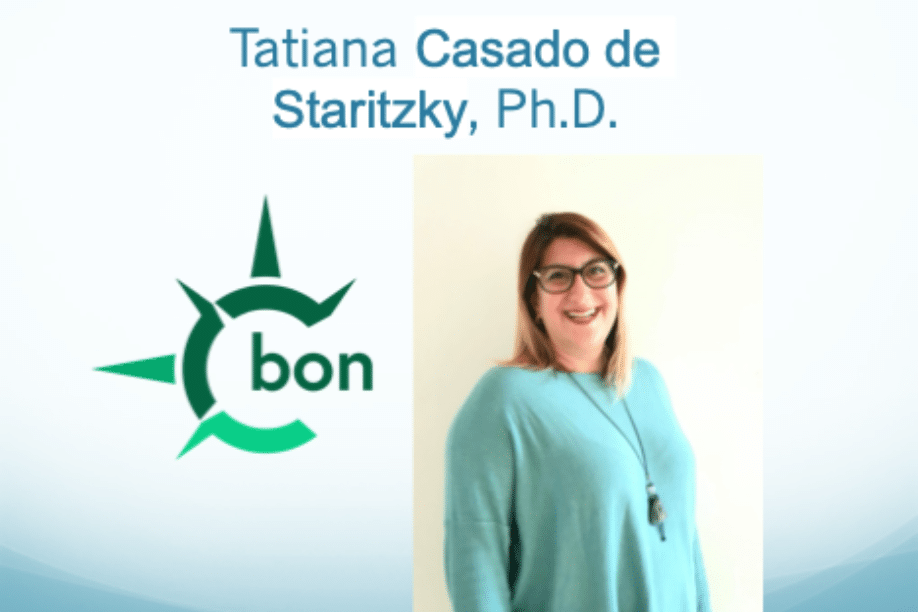New PCOMS Certified Trainer in Spain: Dr. Tatiana Casado de Staritzky

The Better Outcomes Now (BON) team is very pleased to announce the addition of a new Partners for Change Outcome Management System (PCOMS) Certified Trainer, Dr. Tatiana Casado de Staritzky! The PCOMS Certified Trainer designation of BON reflects completion of the Training of Trainers Conference as well as exemplary demonstration of training expertise and a conceptual and practical understanding of PCOMS at both the individual practitioner and agency levels. It requires direct PCOMS experience with clients, a video demonstration of training abilities, a written exam of the six core areas of PCOMS, and an interview.
Tatiana’s Brief Bio

Dr. Tatiana Casado de Staritzky, who lives in Mallorca, Spain, is a social worker, with six years of experience in primary care social services. She also holds a PhD in Psychology. Tatiana is assistant professor of Social Work at the University of the Balearic Islands. Her research interests include collaborative practices with families in high distress and, of course, PCOMS. Tatiana is responsible for many of the Spanish translations of PCOMS articles, and she collaborated in the translation of the PCOMS manual into Spanish.
Currently, she is conducting a study to validate the new Spanish translations of the Outcome Rating Scale and Session Rating Scale in Spain. Soon Tatiana will travel to the US and Canada to conduct a large qualitative investigation of the impact of PCOMS on therapists and their daily practice. She is particularly interested in how PCOMS affects therapists’ beliefs about change and enables more collaborative practices with clients. Dr. Casado de Staritzky intends to spread PCOMS across Spanish-speaking countries.
Training of Trainers Conference Registration:
The annual Training of Trainers Conference (TOT) in West Palm Beach, Florida is the first step to becoming a PCOMS Certified Trainer. The TOT gives you all the information you need to train others and implement PCOMS and BON at your organization, including the same training materials that Dr. Barry Duncan himself uses.
An in-depth coverage of the rationale for and research supporting PCOMS is provided at the TOT, as well as a thorough understanding of how to train others in the clinical nuances of using the Outcome and Session Rating Scales. Additional topics addressed include data collection and management with and without BON, the secrets of agency implementation, and a four-step supervisory process that ensures successful implementation while simultaneously improving outcomes.
